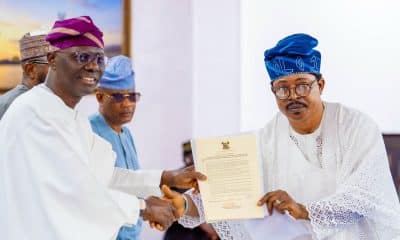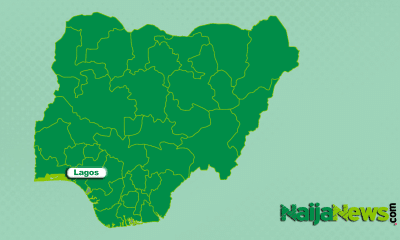Nigeria News
Fashola Reveals Why He Had To Turn Down 17 Honorary Degrees

Former Governor of Lagos State and now Minister of Works and Housing, Babatunde Fashola, has disclosed that he had once turned down 17 honorary degrees from different universities in the country.
The Minister in a statement released on Wednesday, August 19 through his Special Adviser on Communications, Hakeem Bello, decried the abuse of honorary degrees by universities in the country.
Fashola in the statement tagged ‘Fashola Charges Universities On Preparation Of Young People For Leadership’, during a courtesy visit by the Committee of Vice-Chancellors/Association of Vice-Chancellors of Nigerian Universities, said he stopped the award of honorary degrees in the Lagos State University for the benefit of the rising generation.
According to him, “honorary degrees must be conferred on awardees based on merit and not because they occupy political offices or command socio-economic powers.”
“We said, look we are going to be different and for two or three years we did not award any Honorary Degree because truly the idea of Honorary Degree is an important building block of society and once we throw those blocks away or make them unviable then the purpose for it is lost.”
“In my eight years in office I had 17 offers and I didn’t take one. I told them to wait until when I was out of the office and if they still find me worthy they should then come. And when I was out of the office only one came back.
The former governor reiterated that there is a need to encourage the coming generation to be hardworking, urged the dons on the need to come up with “an acceptable version” of the History of Nigeria.
He said, “The point I want to make is that we have to encourage our children to work hard. What have these honorees of the universities done to deserve the honour? What of those who have become undeserving, will you go back and tell them to return the degrees, that they don’t deserve it anymore?”
“There is one thing you can do for Nigeria. Bring all these people together to start work on one acceptable version of Nigeria’s history. It is that version that can be thought in primary and secondary schools. Because that is what is happening in other countries. They fought wars too but they have written one final version of their history. When you have written that final version it will be thought in our primary and secondary schools,”
He added, “Somebody like me, I am a product of an investment of those who set up the University of Benin. Also, there are many Nigerians who, like me, are products of that act of faith that happened in the 1970s.
“I sit here today, and there are Senators, Senate Presidents and so many other professionals who were also products of that investment. And what is true of the University of Benin is also true of all other universities across the country.”












